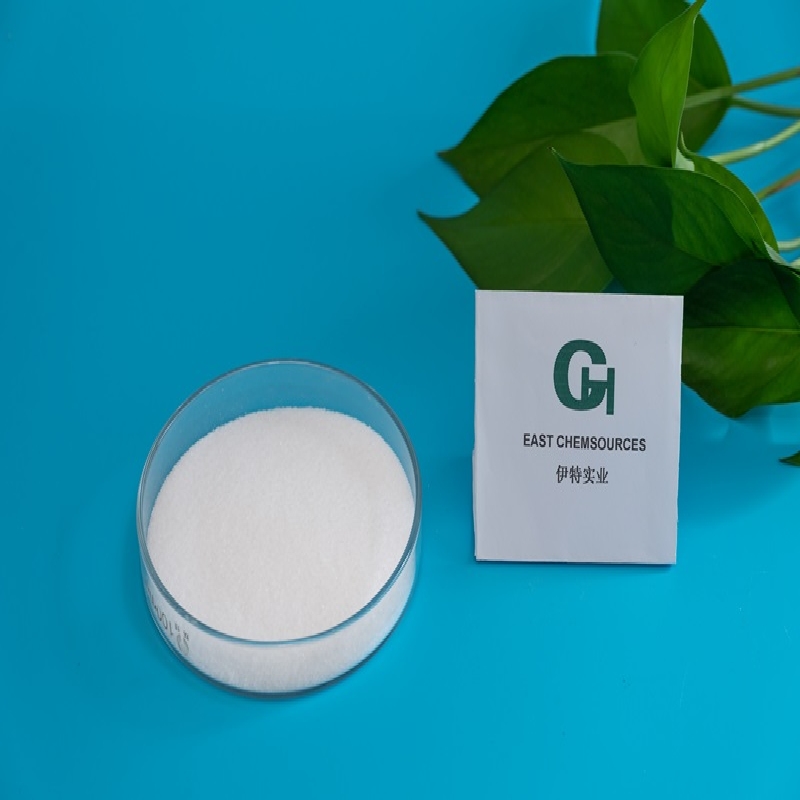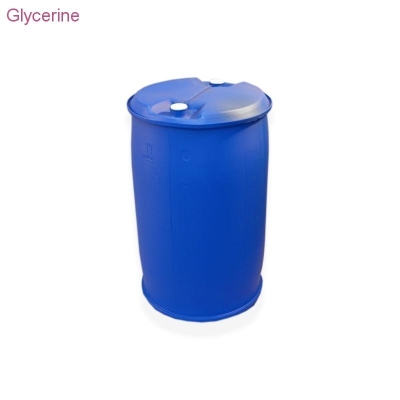-
Categories
-
Pharmaceutical Intermediates
-
Active Pharmaceutical Ingredients
-
Food Additives
- Industrial Coatings
- Agrochemicals
- Dyes and Pigments
- Surfactant
- Flavors and Fragrances
- Chemical Reagents
- Catalyst and Auxiliary
- Natural Products
- Inorganic Chemistry
-
Organic Chemistry
-
Biochemical Engineering
- Analytical Chemistry
- Cosmetic Ingredient
-
Pharmaceutical Intermediates
Promotion
ECHEMI Mall
Wholesale
Weekly Price
Exhibition
News
-
Trade Service
For reference only formedical professionals
Ulcerative colitis (UC) is a chronic non-specific inflammatory disease, the most common clinical symptoms of which are chronic or subacute diarrhea, mostly mucous pus and bloody stool, accompanied by mild to moderate abdominal pain
.
The severity of the condition of UC patients varies, and the clinical type is the most common chronic relapsing type
.
Traditional clinical drugs for UC include aminosalicylic acid preparations, glucocorticoids, and immunosuppressants.
Although most patients can be in remission after conventional drug treatment, there are still some patients due to poor treatment effect and drug intolerance.
, hormone dependence or hormone resistance and other reasons lead to the failure of traditional drug treatment [1]
.
In recent years, with the increasing incidence of UC, the significance of research on its therapeutic drugs has become increasingly prominent, and the emergence of biological agents has opened up a new situation for the treatment of UC
.
Among them, vedolizumab is a new type of integrin antagonist, which is different from the previous systemic biologics.
As a gut-selective biologics [2], it brings a new treatment experience to UC patients
.
As of September 2021, Chongqing People's Hospital had a total of 27 patients with UC treated with vedelizumab, including 19 (70%) first-line patients and 8 (30%) second-line patients
.
The experience and summary of the use of vedelizumab in our hospital are now shared with colleagues
.
1.
Clinical characteristics There are 27 patients with UC who use vedelizumab in our hospital.
The baseline clinical characteristics of the patients are as follows: Table 1: Baseline conditions of UC patients 2.
Treatment efficacy Among 27 UC patients, 19 (70%) were Six (22%) and two (7%) patients had previously received one or two other biologics, respectively, with vedelizumab as first-line therapy
.
Of the 22 patients who completed 14 weeks of treatment, 91% achieved a clinical response and 59% achieved a clinical remission
.
Figure 1: Efficacy of Vedelizumab Use A total of 14 patients treated with Vedelizumab were reviewed for the colonoscopy response rate
.
RESULTS: Endoscopic response (partial mucosal healing or mucosal healing) was achieved in 86% of patients at week 14
.
Figure 2: Colonoscopy response rate after vedolizumab treatment 3.
Sharing of clinical cases how
.
The patient, male, 30 years old, bank clerk, height 168cm, weight 52kg, body mass index (BMI) 19.
4kg/m2
.
Repeated abdominal pain, mucus, pus and blood in the stool for more than 1 year
.
Stent implantation for Budd-Chiari syndrome a year ago
.
▌ History of present illness: The patient developed abdominal pain and diarrhea more than 1 year ago (May 2020), 3-4 times a day, accompanied by fever and joint pain
.
Colonoscopy at the local hospital showed "UC", and the patient was treated with mesalazine + prednisone
.
In June 2020, the patient's colonoscopy re-examination showed that his condition improved, and he received mesalazine + prednisone maintenance therapy.
After that, the prednisone dose was gradually reduced and then discontinued
.
In October 2020, the patient had blood in the stool again, and the symptoms gradually worsened, which did not attract attention
.
In November 2020, the patient had aggravated blood in the stool, pus and blood in the stool 2 times/day, 200g/time, and went to our hospital for treatment
.
Auxiliary examination (November 2020): blood routine: white blood cells (WBC) 14.
69x109/L, neutrophils (N%) 89.
5%, hemoglobin (HGB) 80g/L, platelets (PLT) 163x109g/L
.
Inflammatory indicators: C-reactive protein (CRP) 45.
8 mg/L, erythrocyte sedimentation rate (ESR) 37.
6 mm/h, high-sensitivity C-reactive protein (Hs-CRP) 32.
61 mg/L
.
Liver function: albumin (ALB) 29.
6g/L, serum prealbumin (PA) 153mg/L
.
Other indicators: stool routine: red watery stool, red blood cell (RBC) 4+, WBC 3-5, fecal occult blood test (OB)+; T cell spot test (T-SPOT), tuberculin test (PPD), tuberculosis Antibody was negative; Epstein-Barr virus DNA (EBV-DNA), cytomegalovirus DNA (CMV-DNA), etc.
were normal; antinuclear antibody spectrum, vasculitis antibody, immunoglobulin + complement, and anticardiolipin antibody were all normal
.
▌ Colonoscopy (November 2020): Figure 3: Colonoscopy results Mayo endoscopy score 3 Clinical diagnosis: UC (chronic relapsing, pancolonic, active, moderate to severe); Budd-Chiari syndrome
.
▌ Treatment process: On December 1, 2020, the patient was given vedolizumab 300 mg intravenous infusion combined with prednisone 40 mg/day
.
On Dec.
15, a dose reduction of prednisone was started while the patient was being treated with an intravenous infusion of vedolizumab 300 mg
.
On January 12, 2021, the patient continued to infuse the third dose of vedolizumab, and the dose of prednisone was reduced to 20 mg/day and then gradually discontinued
.
After 14 weeks of vedolizumab treatment (March 2021), the colonoscopy was reviewed and the results were as follows
.
Thereafter, the patient continued on maintenance therapy with vedolizumab as a single agent
.
Figure 4: Colonoscopy results after 14 weeks of vedolizumab therapy.
It is found that some UC patients with remission of clinical symptoms still have varying degrees of mucosal damage and intestinal inflammation [3], which undoubtedly puts forward higher requirements for the treatment of UC
.
In April 2021, the International Organization for the Study of Inflammatory Bowel Disease (IOIBD) updated the consensus on the selection of treatment goals for IBD (STRIDE-II), which regards endoscopic mucosal healing, restoration of quality of life, and disability reduction as long-term treatment goals [4]
.
●In recent years, new biological agents have been emerging, and the treatment of IBD has entered the era of biological agents.
Biological agents can not only relieve symptoms quickly, but also promote and maintain mucosal healing [5]
.
Therefore, more and more guideline consensuses have changed the recommended timing of the use of biologics.
The 2020 American Gastroenterological Association (AGA) guidelines recommend that patients with moderate to severe UC should use biologics as soon as possible, rather than in 5-amino water The treatment was gradually escalated after the failure of sylic acid treatment [6]
.
Vedelizumab is a novel integrin antagonist, and the GEMINI 1 study showed that the efficacy of vedolizumab in promoting mucosal healing in UC showed a significant advantage over placebo in the 6-week induction period ( 40.
9% vs.
24.
8%, P=0.
001) [7]; the results of the VARSITY study confirmed that vedolizumab had better clinical remission and mucosal healing efficacy than adalimumab (31.
3% vs.
22.
5% and 39.
7%).
% vs 27.
7%, P < 0.
01) [8], which provides an important basis for the selection of biological agents in the clinical treatment of UC
.
●In terms of safety, the safety advantage of vedelizumab compared with other IBD drugs lies in its intestinal selective mechanism of action, thus avoiding a series of adverse events (AEs) caused by systemic immunosuppression [9]
.
The results of the study show that vedolizumab has a safety and low immunogenicity comparable to placebo, and is not associated with an increased risk of serious infections or opportunistic infections.
Malignant tumors in IBD patients treated with vedolizumab The incidence of IBD patients under normal circumstances is comparable [2]
.
In conclusion, vedolizumab has a favorable benefit-risk profile, reflecting its important role in the long-term treatment of IBD, and has been approved by the European Crohn's and Colitis Organization (ECCO) , American College of Gastroenterology (ACG) guidelines and AGA guidelines recommend as first-line biologics for IBD
.
Expert Profile Commentary Expert Prof.
Guo Hong Director, Chief Physician, Professor, Doctoral Supervisor, Department of Gastroenterology, Chongqing Hospital, University of Chinese Academy of Sciences (Chongqing People's Hospital) Member of the Microecology Group of the Digestive Branch of the Chinese Medical Association, member of the Difficult and Critical Care Collaborative Group of the Chinese Medical Association Liver Disease Member of the Self-immune Liver Collaboration Group of the Academic Society Vice-chairman of the Digestive Specialized Committee of the Chongqing Association of Integrative Medicine and IBD Research Group Leader of the Digestive Immunology Group of the Digestive Specialized Committee of the Chongqing Medical Association, Deputy Group of the IBD Research Group and the Hp Research Group Long case provided by the author Tan Wei attending physician University of Chinese Academy of Sciences Chongqing Hospital (Chongqing People's Hospital) Master of Gastroenterology, attending physician is good at chronic gastritis, gastroesophageal reflux disease, peptic ulcer, gastrointestinal bleeding, Helicobacter pylori infection, acute Pancreatitis, functional dyspepsia and other common and frequently-occurring diseases in gastroenterology, as well as endoscopic examination, microscopic diagnosis and treatment
.
AGA Clinical Practice Guidelines on the Management of Moderate to Severe Ulcerative Colitis[J].
Gastroenterology.
2020 Apr;158(5):1450-1461.
[7]FeaganBG, RutgeertsP, SandsBE, et al.
Vedolizumab as induction and maintenance therapy for ulcerative colitis[J].
N Engl J Med.
2013; 369(8): 699-710.
[8]SandsBE, Peyrin-BirouletL, LoftusEV, et al.
Vedolizumab versus adalimumab for moderate-to-severe ulcerative colitis[J] .
N Engl J Med.
2019; 381(13): 1215-1226.
[9] Li Huibo, Liu Fang, Zhai Suodi.
A new option for the treatment of inflammatory bowel disease: the gut-selective integrin inhibitor Videlizumab Monoclonal antibody[J].
China Journal of New Drugs.
2021; 30(20): 1841-1845.
Review of past issues: patients with incipient and severe ulcerative colitis, with rapid symptom relief after treatment with novel biologics, ulcerative colitis with recurrent infections Patients, how should treatment decisions be made? In the treatment of ulcerative colitis, it is necessary to take into account precise anti-inflammatory, efficacy and safety! Disclaimer: This content is only aimed at Chinese medical and health professionals, and is intended to provide and only provide scientific information to medical and health professionals for personal learning and reference purposes N Engl J Med.
2013; 369(8): 699-710.
[8]SandsBE, Peyrin-BirouletL, LoftusEV, et al.
Vedolizumab versus adalimumab for moderate-to-severe ulcerative colitis[J].
N Engl J Med.
2019; 381(13): 1215-1226.
[9] Li Huibo, Liu Fang, Zhai Suodi.
A new treatment option for inflammatory bowel disease: the gut-selective integrin inhibitor vedelizumab[J].
Chinese Journal of New Drugs.
2021; 30(20): 1841-1845.
Review of past issues: patients with incipient and severe ulcerative colitis, patients with ulcerative colitis with rapid symptom relief after treatment with novel biologics, and what should be the treatment plan decision making? In the treatment of ulcerative colitis, it is necessary to take into account precise anti-inflammatory, efficacy and safety! Disclaimer: This content is only aimed at Chinese medical and health professionals, and is intended to provide and only provide scientific information to medical and health professionals for personal learning and reference purposes N Engl J Med.
2013; 369(8): 699-710.
[8]SandsBE, Peyrin-BirouletL, LoftusEV, et al.
Vedolizumab versus adalimumab for moderate-to-severe ulcerative colitis[J].
N Engl J Med.
2019; 381(13): 1215-1226.
[9] Li Huibo, Liu Fang, Zhai Suodi.
A new treatment option for inflammatory bowel disease: the gut-selective integrin inhibitor vedelizumab[J].
Chinese Journal of New Drugs.
2021; 30(20): 1841-1845.
Review of past issues: patients with incipient and severe ulcerative colitis, patients with ulcerative colitis with rapid symptom relief after treatment with novel biologics, and what should be the treatment plan decision making? In the treatment of ulcerative colitis, it is necessary to take into account precise anti-inflammatory, efficacy and safety! Disclaimer: This content is only aimed at Chinese medical and health professionals, and is intended to provide and only provide scientific information to medical and health professionals for personal learning and reference purposes
.
If you are not a healthcare professional, please do not participate or spread
.
- End -







